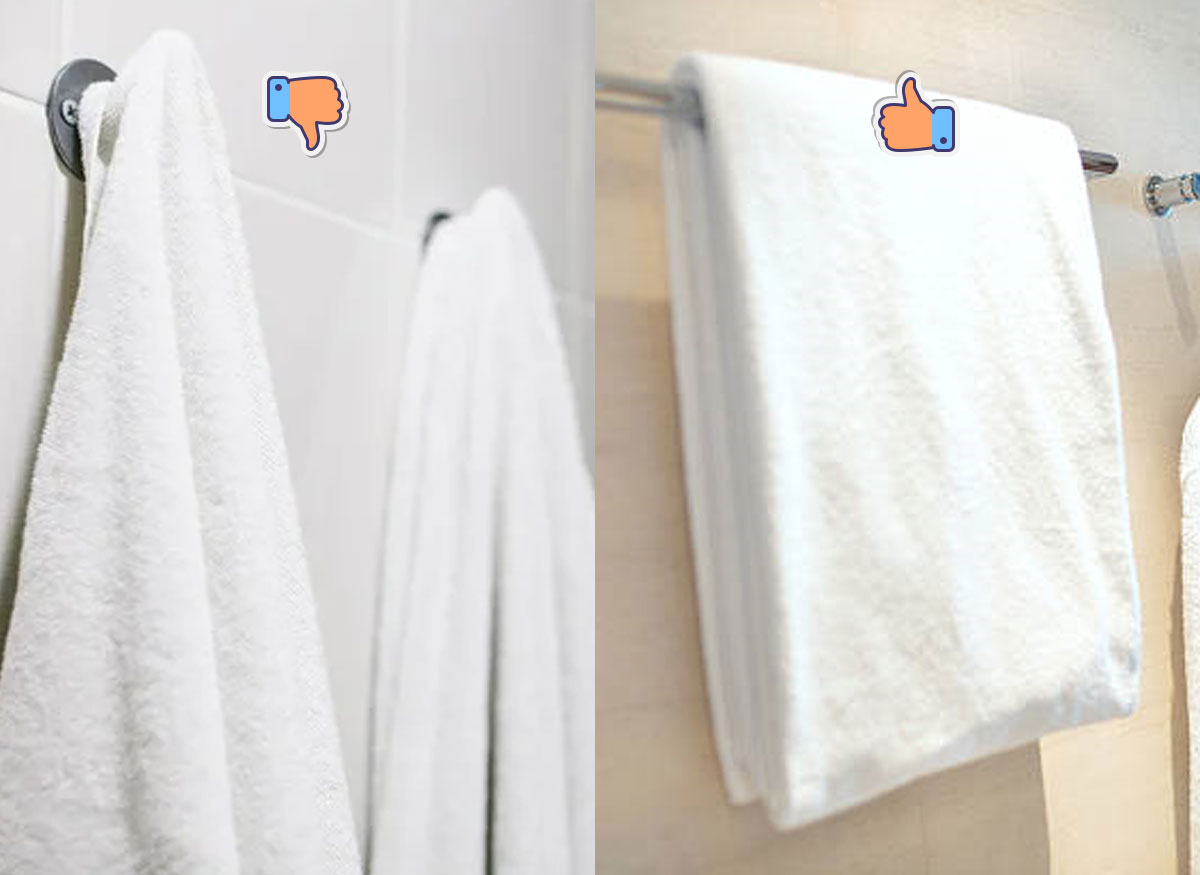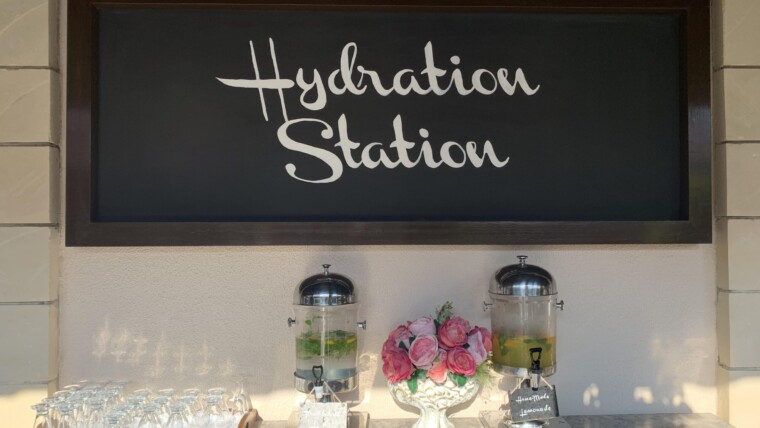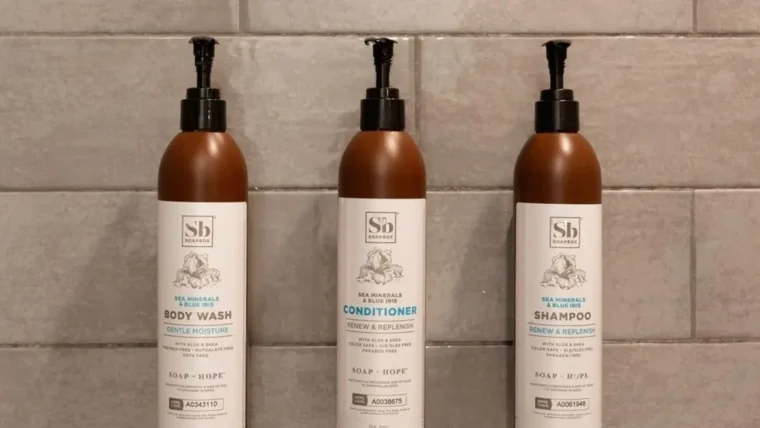Table of Contents
Introduction
As the hospitality industry increasingly embraces eco-friendly practices, towel reuse programs have emerged as a simple yet impactful way for hotels to reduce their environmental footprint and operational costs. These initiatives encourage guests to reuse their bath towels during their stay, significantly reducing water consumption, energy usage, and detergent use. Beyond the direct savings, such programs appeal to the growing number of environmentally conscious travelers, enhancing your hotel’s reputation and potentially attracting more guests.
According to a study by the US Travel Data Center, an estimated 43 million “environmental travelers” in the USA alone are concerned about supporting environmental efforts. This growing trend underscores the importance of implementing sustainable practices in hotels.
The Rising Trend of Towel Reuse in India
Recent studies indicate a growing acceptance of towel reuse programs among Indian travelers. According to a report published by Hotelier India, 55% of travelers are now adopting eco-friendly habits, including participating in towel reuse initiatives. This trend underscores the importance of implementing such programs in hotels across India.
Benefits of Implementing a Towel Reuse Program
- Environmental Impact: Significant reduction in water consumption, energy usage, and detergent use.
- Cost Savings: Hotels can cut laundry expenses considerably. For example, the Holiday Inn in Burlington, North Carolina, USA, saved almost US$20,000 yearly by reducing room-cleaning time by six minutes per room with its sheet and towel reuse program.
- Guest Satisfaction: Many eco-conscious travelers appreciate and seek out hotels with such initiatives. A study by CNN Travel found that guests who participate in a hotel’s sustainability efforts reported higher satisfaction with their stay.
- Extended Linen Life: Less frequent washing means less wear on fabrics, prolonging their life and reducing replacement costs.
- Operational Efficiency: Housekeeping staff have more time to focus on other tasks, improving overall service quality.
Implementing Your Towel Reuse Program: A Step-by-Step Guide
1. Communicate Effectively with Guests
Clear and strategic communication is crucial for the success of your towel reuse program. Here’s how to ensure your message reaches guests at various touchpoints:
a) Publish Information on Your Website
- Create a dedicated page explaining your towel reuse program and other eco-friendly initiatives.
- Highlight the environmental benefits and how guests can participate.
b) Include Information in Reservation Confirmations
Sample message for reservation confirmation email:
As part of our commitment to sustainability, we offer a towel reuse program. By participating, you can help us save water and energy. Simply hang your towels if you wish to reuse them, or place them on the floor for fresh ones. Together, we can make a positive impact on the environment.c) Use In-Room Messaging
Research by Cornell University on “Invoking Social Norms: a Social Psychology Perspective on Improving Hotels’ Linen Reuse Programs” found that descriptive messaging is most effective. Here’s a tested message that achieved a 47% participation rate:
“JOIN YOUR FELLOW GUESTS IN HELPING TO SAVE THE ENVIRONMENT. Almost 75% of guests who are asked to participate in our new resource savings program do help by using their towels more than once. You can join your fellow guests in this program to help save the environment by reusing your towels during your stay.”
Place this message on hanging cards or tent cards in multiple locations within the room to ensure visibility.
You can read the complete article on the research here:
Additional sample messages for tent cards:
- “Your small act can make a big difference. Reuse your towels and help us save thousands of liters of water annually.”
- “Be part of the solution! Hang your towels to reuse them and help us reduce water and energy consumption.”
d) Communicate at Check-In
Sample script for check-in:
“In your room, you’ll find information about our towel reuse program. By hanging your towels, you indicate you’d like to reuse them. This helps us save water and energy. If you need fresh towels at any time, just let our housekeeping staff know.”
2. Provide Proper Towel Hanging Facilities
To encourage reuse, it’s crucial to ensure guests have appropriate means to dry their towels effectively:
- Install proper towel racks or rails in bathrooms, not just hooks. No guest wants to use a soggy towel, so it’s essential to provide adequate hanging space for towels to dry completely before their next use.
- Avoid relying solely on hooks for towel hanging. If guests only have hooks to hang their towels, there’s little chance the towels will dry properly, discouraging reuse.
- Ensure adequate ventilation in bathrooms to prevent towels from remaining damp and musty.
- If space allows, install multiple towel bars to accommodate different towel sizes and multiple guests.
- For hotels with limited wall space, consider over-the-door towel racks or freestanding towel stands as alternatives.
By providing proper drying facilities, you not only encourage guests to participate in your towel reuse program but also enhance their overall experience. Dry, fresh-feeling towels are more likely to be reused, increasing the success rate of your sustainability efforts while maintaining guest comfort and satisfaction.

3. Train Your Housekeeping Team
Proper staff training is essential for the program’s success:
- Educate staff on the importance of the program and its environmental impact.
- Provide clear guidelines on identifying and respecting guests’ towel reuse choices.
- Train staff to replace towels only when they are placed on the floor or in designated areas.
- Implement a system for staff to track participation rates and report any issues.
Remember, the success of our towel reuse program depends on you. This video demonstrates, even the most willing guests can’t participate effectively if we don’t follow through on our end. Your attention to detail and respect for guests’ choices are crucial in making this program work.
The Environmental and Financial Impact
Implementing a towel reuse program can lead to significant environmental and financial benefits:
- Water Conservation: A typical hotel can save 17 gallons of water per occupied room night.
- Energy Savings: Reduced hot water usage leads to lower energy consumption.
- Detergent Reduction: Less frequent washing means reduced chemical usage.
- Cost Savings: Hotels can save approximately $6.50 per occupied room night through linen and towel reuse programs.
- Laundry Reduction: According to the American Hotel and Lodging Association, requesting patrons to participate in the program reduces the number of loads of laundry—as well as related water, sewer, energy, and labor costs—by 17 percent.
Frequently Asked Questions
To help you better understand and implement a successful towel reuse program, here are answers to some commonly asked questions:
- What are the main benefits of a towel reuse program for hotels?
Towel reuse programs offer multiple benefits:- Environmental impact: They significantly reduce water consumption, energy usage, and detergent use.
- Cost savings: Hotels can cut laundry expenses considerably.
- Guest satisfaction: Many eco-conscious travelers appreciate and seek out hotels with such initiatives.
- Marketing advantage: It enhances the hotel’s image as an environmentally responsible business.
- How can hotels effectively communicate the towel reuse program to guests?
Effective communication involves multiple touchpoints:- Website: Include program details on your sustainability page.
- Reservation confirmations: Mention the program in booking emails.
- Check-in: Brief guests about the program upon arrival.
- In-room messaging: Use clear, strategically placed cards or signs in the bathroom.
- Staff interaction: Train staff to politely remind guests about the program when appropriate.
- What’s the best way to phrase the towel reuse message for maximum participation?
Research shows that social norm messaging is most effective. For example: “JOIN YOUR FELLOW GUESTS IN HELPING TO SAVE THE ENVIRONMENT. Almost 75% of guests participate in our resource-saving program by reusing their towels. You can join them in helping to save the environment during your stay.” This approach leverages the power of social influence to encourage participation. - How can hotels ensure guests have a positive experience with towel reuse?
To ensure a positive experience:- Provide proper drying facilities like towel racks or heated rails.
- Ensure bathrooms are well-ventilated to prevent damp towels.
- Train housekeeping to respect guests’ choices and replace towels promptly when requested.
- Offer high-quality, absorbent towels that dry quickly.
- Provide clear instructions on how to participate in the program.
- What are some common challenges in implementing a towel reuse program, and how can they be addressed?
Common challenges include:- Guest resistance: Address by clearly communicating benefits and making participation easy.
- Staff inconsistency: Solve with thorough training and regular reminders.
- Ineffective messaging: Improve by testing different message formats and placements.
- Lack of proper facilities: Invest in adequate towel racks and ventilation.
- Difficulty tracking impact: Implement systems to measure water and energy savings.
Conclusion
Implementing a towel reuse program is a simple yet effective way for hotels to reduce their environmental impact while cutting operational costs. By communicating clearly with guests, providing proper facilities, and training staff effectively, you can create a successful program that benefits both your hotel and the planet. As more travelers seek eco-friendly accommodations, such initiatives can give your hotel a competitive edge in the market.
Remember, the key to success lies in making it easy and appealing for guests to participate. Start small, measure your results, and continuously improve your program to maximize its impact and guest satisfaction. With the insights provided in this guide and the answers to common questions, you’re well-equipped to launch a successful towel reuse program that will benefit your hotel, your guests, and the environment.
References
Hotelier India. (2023). Towel reuse on the rise: 55% travellers adopting eco-friendly habits. Retrieved from https://www.hotelierindia.com/operations/towel-reuse-on-the-rise-55-travellers-adopting-eco-friendly-habits
Goldstein, N. J., Cialdini, R. B., & Griskevicius, V. (2008). A Room with a Viewpoint: Using Social Norms to Motivate Environmental Conservation in Hotels. Journal of Consumer Research, 35(3), 472-482.
We invite readers to share their experiences with towel reuse programs or ask any questions in the comments section below. Your insights can help fellow hoteliers improve their sustainability initiatives.








Essential Diversey Chemicals: A Guide for R1 to R9 TASKI Series
How to Respond to Guest Reviews with 10 Samples
Top OTAs in India: Complete 2024 Guide for Hoteliers
Different Types of Paper Napkins for Restaurants
Guest Reviews: The Hidden Force Behind Bookings